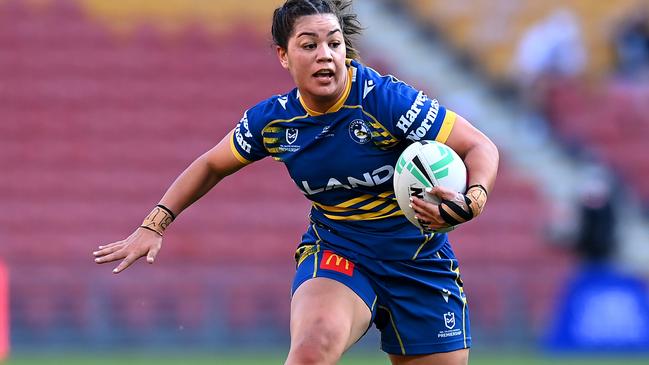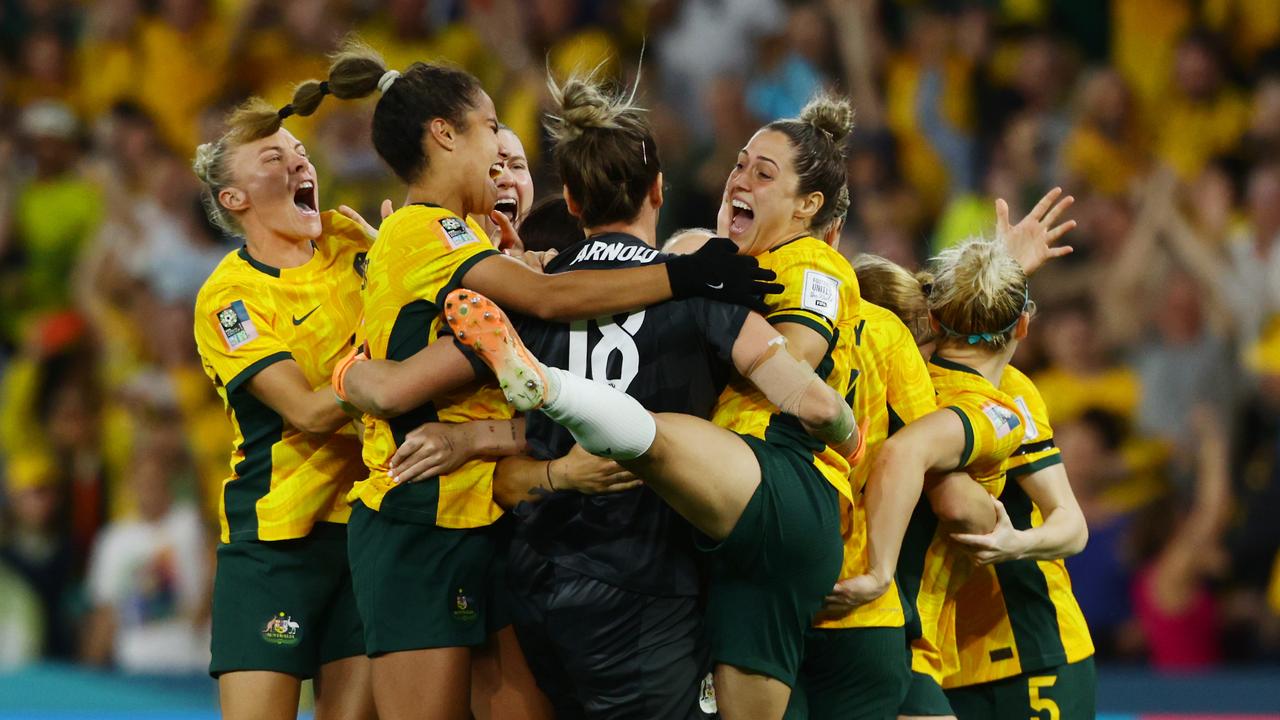NRL, AIS in ground-breaking study to to examine effect of menstrual cycle on sporting performance
Just mentioning your period provokes reactions in people that force the woman to feel shame. It’s time for change and the NRLW is leading the way.

CODE Insight
Don't miss out on the headlines from CODE Insight. Followed categories will be added to My News.
Kennedy Cherrington was ready to leave everything out of the field for the Jillaroos in last year’s World Cup final but niggling away in the back of her mind was the fact she was on her period.
The star Parramatta forward had nailed the preparation for one of the biggest games of her life but what she wasn’t counting on was having her period that day.
“I was thinking of all weeks, of all days, ‘why this one’,” Cherrington said.
“You almost have to psych yourself that little bit extra. I have to focus on motivating myself to overcome feeling heavy, feeling sluggish.
“In a big game like that, it did play on my confidence.”

Cherrington’s experience is not a unique one for female athletes.
The relationship between menstruation, and hormonal contraceptive, on performance, both physically and mentally, is still an understudied aspect of women’s sport.
But the NRL is trying to change that.
The NRL teamed up with the Australian Institute of Sport last year to conduct a first of its kind research study to examine the effect of the menstrual cycle on performance.
A squad of 26 Indigenous female rugby league players took part in the ground-breaking collaboration during a five-week camp.
The results of the revolutionary study are expected to help shape the understanding and management of menstrual cycles on not just performance but overall health and even injury recovery for athletes.
While the science has been limited so far, Simon Buxton, the NRL’s elite women’s performance manager, has been taking a holistic approach to monitoring the game’s elite players.
Buxton worked tirelessly with Cherrington, and the Jillaroos, during the World Cup tracking every aspect of each player’s routine, including menstrual cycles.
It helped Buxton ensure the players under his care could perform at their best but also to individualise the intervention required to support each player.
“We individualise the interventions based on our daily monitoring. We have an athlete management system where we can track their cycles,” Buxton said.

“We built a dashboard where each player would wake up in the morning about their wellness, sleep, training rate of perceived exertion, muscle soreness for example which spits out a report to me.
“I’d measure their power to get an indication of neuromuscular fatigue because that’s an indication they could get an injury.”
But like the impact of menstrual cycles on the body, the way women choose to deal with their period is different for each athlete.
Some choose the pill, others opt for intrauterine devices (IUDs) and some choose neither.
That choice is also likely to impact women hormonally, and in turn how their bodies react, and feel, at different stages of the menstrual cycle.
“Usually before my period I can feel slugglish, like I don’t want to train and then after a couple of days after. But the time in between, I actually feel a lot stronger and more motivated,” Cherrington said.
“But other girls in the squad have the opposite experience. It’s very much an individual thing.”
As one of the game’s elite players Cherrington has had access to resources and information through the NSW Blues and Jillaroos camps that are not normally available to other athletes at the club level.
Cherrington praised the Eels for leading the way in that space in the NRLW and wants to see all clubs follow suit.

“It’s in the Blues and Jillaroos camps where we’ve been educated in that space. Which is sad because it’s something that happens every month,” Cherrington said.
“We’ve been lucky to have those resources at that level. But that’s not something everyone has access to.”
But the science of menstruation and women’s sport is not the only thing lagging, Cherrington believes more needs to be done to remove the ‘shame’ attached to periods.
Removing the stigma will help promote honesty when athletes are self-reporting symptoms, which is still the most effective way of managing the impacts of periods on performance.
“We need to keep speaking about it. Breaking down that shame barrier,” Cherrington said.
“We’ve done really good work when it comes to mental health and breaking down the shame around speaking up.
“The more we talk about periods, the more comfortable, and help female athletes can get with dealing with it and how it can affect you physically, mentally and of course your performance.



